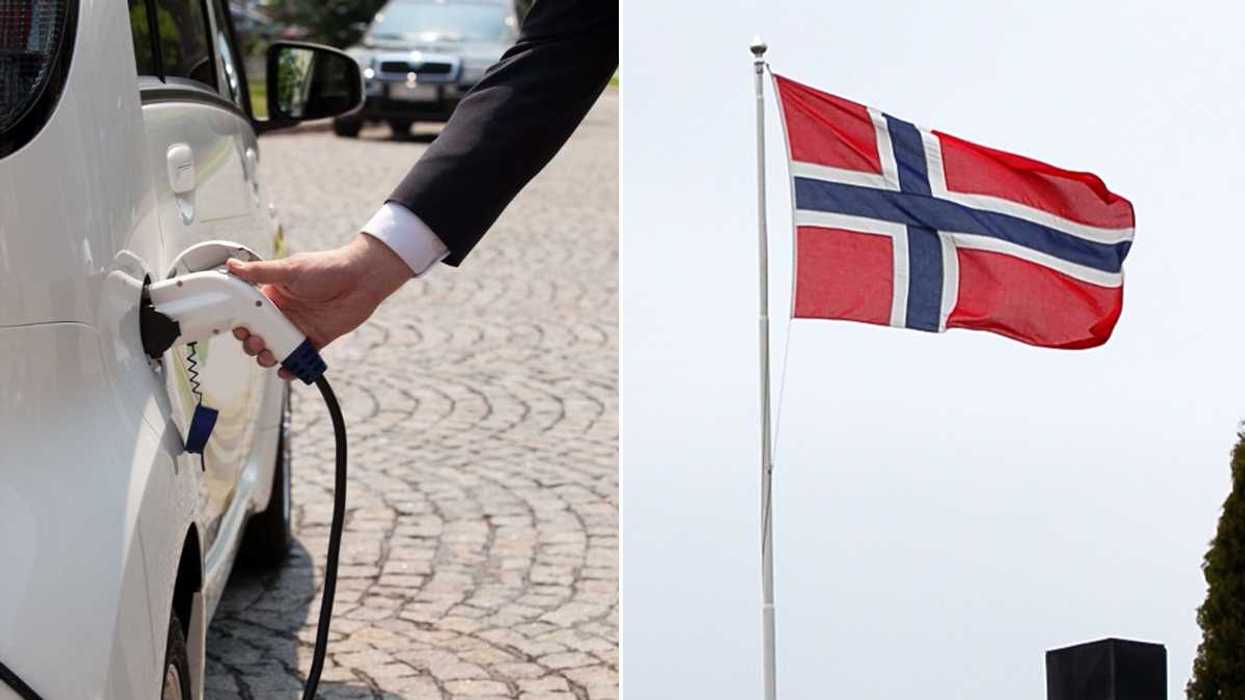As world leaders meet to discuss new ways to tackle climate change at the U.N. Climate Action Summit, they might miss one very big part of healing nature – nature. In a new short film, youth climate change activist Greta Thunberg and George Monbiot, a writer for the Guardian, talked about how we need to use nature as a solution to climate change.
There's a huge push to curb emissions, but it's not the be all end all of handling climate change; we also need to remove CO2 from the atmosphere. While we don't have technology to do that for us, there is another solution. "There is a magic machine that sucks carbon out of the air, costs very little, and builds itself. It's called a tree," Monboit says in the film. Researchers found that we could get rid of two-thirds of the carbon dioxide that we've emitted during the industrial era just by growing trees. That amounts to 205 billion tons of carbon. Right now, deforestation of tropical forests is responsible for 20% of current greenhouse emissions.
RELATED: How you can get involved in the Global Climate Strike
Deforestation occurs at a pretty swift rate. Each year, we lose about 18 million acres of forest because of deforestation. That's roughly the size of Panama. We've already cleared out half of the world's tropical forests. This summer, an uptick in deforestation resulted in the alarming Amazon fires in Brazil. Although the Amazon doesn't produce 20% of the world's oxygen, the Amazondoes store 25% of the world's carbon, which means it's still important to keep around.
Thunberg and Monboit point out that natural climate change solutions are a cost-effective way of removing carbon dioxide from the atmosphere. Yet efforts to use trees as a natural defense are underfunded, receiving only 2% of the money used to cut emissions. "Right now, we are ignoring natural climate solutions," Thunberg said, per the Guardian. "We spend 1,000 times more on global fossil fuel subsidies than on nature-based solutions. This is your money, it is your taxes, and your savings." Planting trees feels like a win-win.
We are seeing reforestation efforts cropping up worldwide. The Bonn Challenge started in 2011, with the goal of restoring 150 million hectares of forest by 2020. The movement now has a goal to restore 350 million hectaresby 2030 — that's an area larger than India. Speaking of India, this year, a million Indians banded together to plant 220 million trees in one single day. They finished by 5 p.m., proving you can do your part to conserve the environment and still get home for dinner.
RELATED: Nonprofit plants its 250 millionth tree in order to help heal the planet
Of course, it's not enough to just plant a forest and call it a day. We still need to curb our usage of fossil fuels. "Nature is a tool we can use to repair our broken climate," Monbiot said in the Guardian."These solutions could make a massive difference, but only if we leave fossil fuels in the ground as well."
So, if you ever wanted an excuse to plant a tree, now you have a great one. Go out there and get planting!
















 Amoxicillin is a commonly prescribed broad-spectrum antibiotic.
Amoxicillin is a commonly prescribed broad-spectrum antibiotic.  Chart: The Conversation, CC-BY-ND
Chart: The Conversation, CC-BY-ND
 An envelope filled with cashCanva
An envelope filled with cashCanva Gif of someone saying "Oh, you
Gif of someone saying "Oh, you
 Two penguins play by the waterCanva
Two penguins play by the waterCanva
 A parking lot for charging electric vehicles.Photo credit
A parking lot for charging electric vehicles.Photo credit  Oil production.Photo credit
Oil production.Photo credit  Sun shines over the Earth.Photo credit
Sun shines over the Earth.Photo credit 
 Counterintuitively, social media can make you feel more bored and lonely.
Counterintuitively, social media can make you feel more bored and lonely. Talking about what you’ve read can add a social dimension to what can be a solitary activity.
Talking about what you’ve read can add a social dimension to what can be a solitary activity. 
 A flight attendant closes the overhead binCanva
A flight attendant closes the overhead binCanva Gif of Larry David trying to put his luggage in overhead compartment via
Gif of Larry David trying to put his luggage in overhead compartment via 
 Dog owner pets their dogCanva
Dog owner pets their dogCanva Gif of a sad looking pug via
Gif of a sad looking pug via 